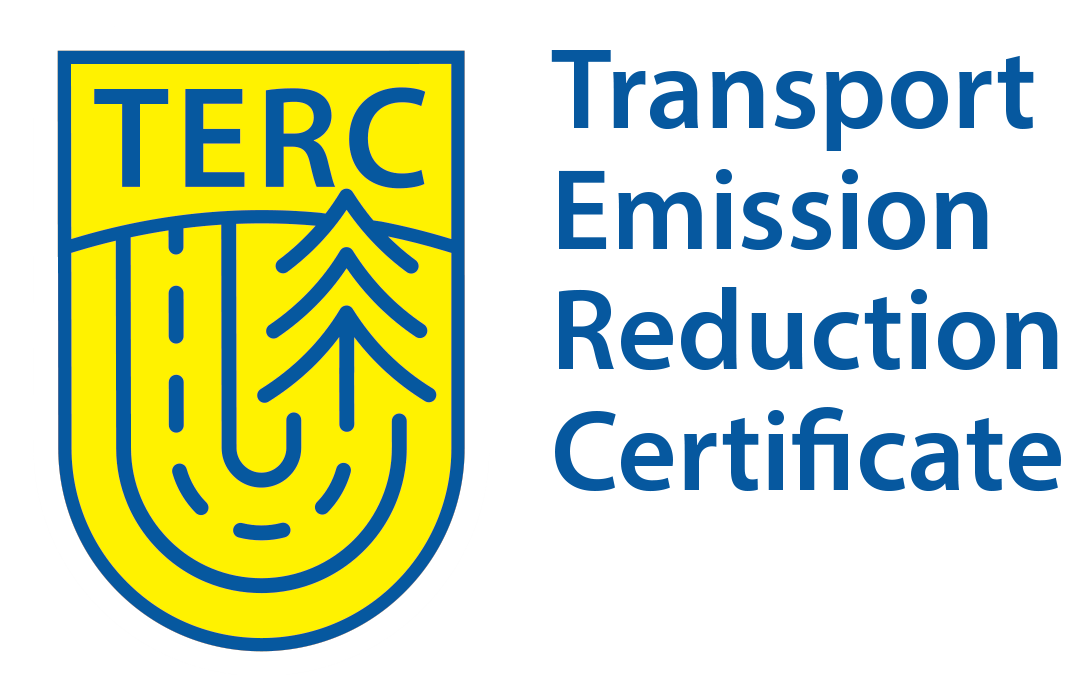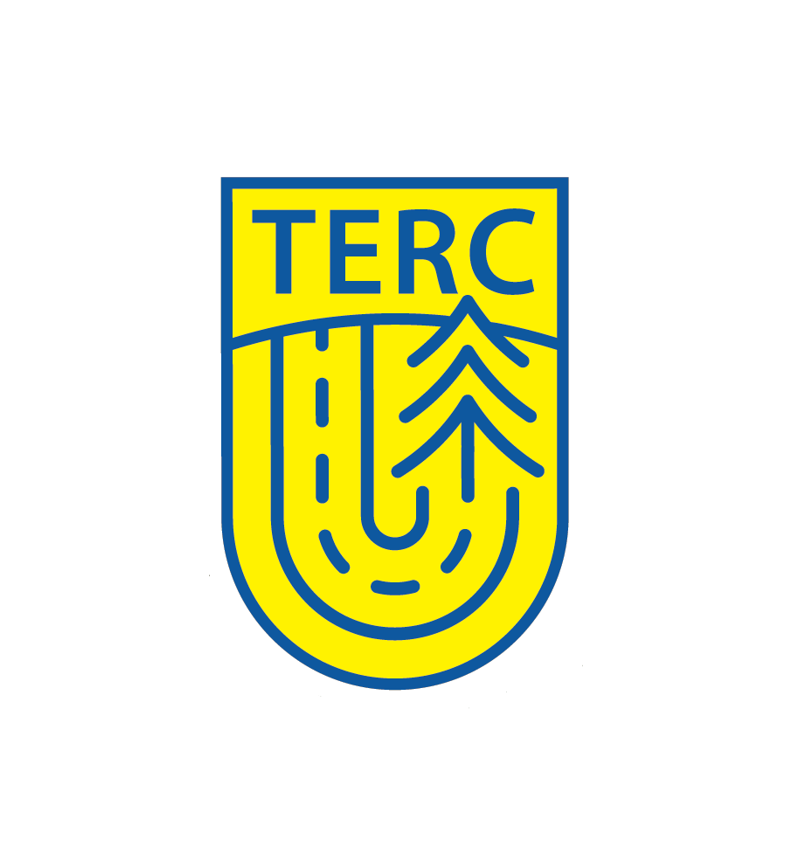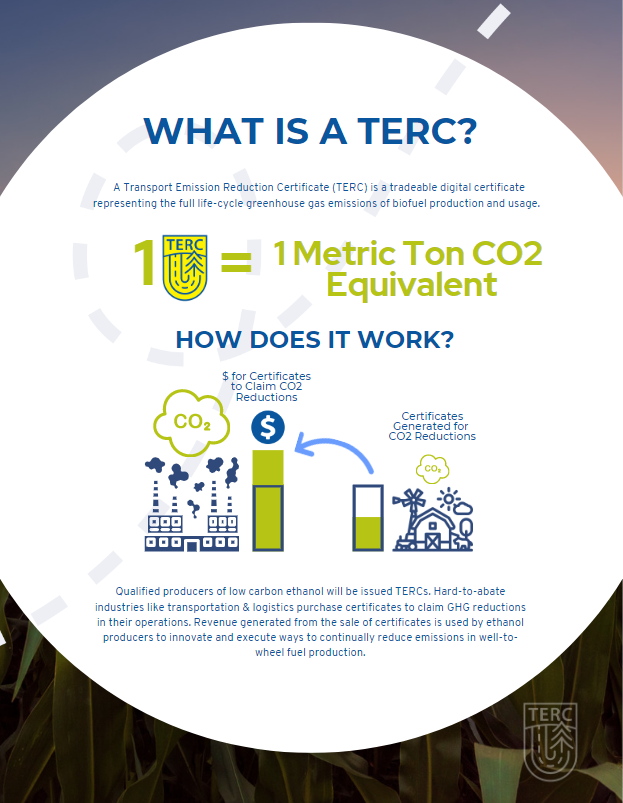The transportation sector accounts for the largest percentage of GHG emissions in the United States, and faces particularly challenging and capital-intensive hurdles to abatement. A combination of policy, technological, and behavioral changes will be necessary to shift the sector toward low-carbon alternatives.
According to a 2021 U.S. Department of Energy Study published by Argonne National Laboratory, corn ethanol produced domestically has 44%-52% lower GHG emissions than gasoline. Existing technologies have the potential to make significant improvements in overall reduction of its life cycle GHG emissions. TERC is uniquely positioned to bring rapid decarbonization to fuel ethanol which makes up about 10% of blended gasoline used in the U.S. today.
The Transport Emission Reduction Certificate (TERC) Program is a voluntary, market-based initiative aimed at reducing greenhouse gas emission associated with biofuel production and usage across the United States.
Inspired by the success of regulated low-carbon fuel standards, which are designed to reduce greenhouse gas emissions in the future below a certain level, the TERC Program enlists the voluntary participation of fuel producers and fuel users to drive down the carbon intensity of transportation fuels.






